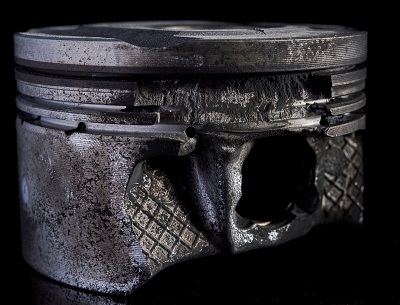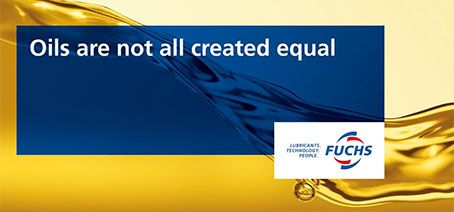LSPI - and why the right engine oil can help
Low Speed Pre-Ignition (short: LSPI) is a much discussed technical phenomenon in engine technology that poses particular challenges for both the automotive and lubricant industries.
What exactly is LSPI?
LSPI refers to the unintentional and uncontrolled pre-ignition of the fuel-air mixture in the engine before the actual engine ignition. Premature ignition occurs mainly in highly supercharged gasoline engines with direct injection and turbocharging and can cause major engine damage.
How can LSPI be detected?
LSPI makes itself noticeable by knocking noises, not to be confused with the familiar "engine ringing". The knocking noise is caused by accidental explosions of the fuel-air mixture at low speed and high load. The effect is additionally favored by a cold engine, so that, for example, the morning drive from the underground parking garage up a steep ramp would represent the worst-case scenario.
What are the occuring damages?
The damage caused by LSPI is often far-reaching and usually directly visible. Their repair is very cost-intensive, since total engine damage in the form of piston damage such as holes in the piston head, burnt top land, broken piston rings, as well as destroyed connecting rods and defective connecting rod bearing shells frequently occur.
Which role do engine oils play in this?
LSPI is mainly caused by the operating condition and construction of the engine, its combustion strategy and the quality of the fuel used. In addition, extensive studies and research have shown that certain ingredients of the engine oil favor the LSPI process. Automobile associations and vehicle manufacturers have reacted accordingly and provided remedies. These resulted, among other things, in the introduction of new or updating of existing engine oil specifications. Special engine tests that simulate the occurrence of LSPI at low speeds and high loads and measure the probability of occurrence and frequency of occurrence are now included in the specifications.
FUCHS has been able to apply the experience gained from joint development work with automobile manufacturers to other products and has built up a portfolio of LSPI-reducing engine oils. As turbocharged gasoline engines with direct injection become more widespread, FUCHS engine oils can help to ensure reliable operation and a long service life with state-of-the-art engine technology.
FUCHS engine oils that meet LSPI-relevant specifications:
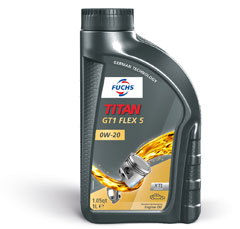
TITAN GT1 FLEX 5 SAE 0W-20
Premium Performance Engine Oil in path-breaking viscosity class. Specially designed for highly stressed downsized engines with maximum power output, for extreme fuel-economy characteristics and reduced CO2 emissions. Excellent cold starting behaviour, very fast oil circulation and outstanding performance reserves.
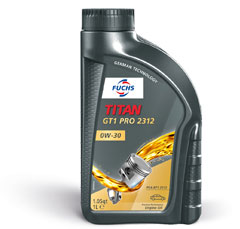
TITAN GT1 PRO 2312 SAE 0W-30
Premium Performance, fuel-economy engine oil for modern passenger cars and light commercial vehicles. Specially developed for latest PSA gasoline and diesel vehicles with exhaust after treatment and turbocharger. Excellent cold starting, lower oil consumption and minimized exhaust emissions.

TITAN GT1 FLEX C23 SAE 5W-30
Premium Performance, extreme fuel-economy engine oil with optimum cold start ability and outstanding performance reserves. For modern passenger cars and light commercial vehicles with or without extended service intervals. Additionally applicable in hybrid vehicles of different manufacturers such as Audi or Mercedes-Benz.
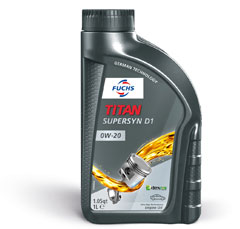
TITAN Supersyn D1 SAE 0W-20
Ultra High Performance, extreme fuel economy engine oil, specially developed for GM gasoline engines requiring dexos1TM Gen 3 fluid. Optimum cold starting, lower oil consumption and minimised exhaust emissions.
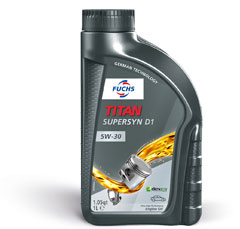
TITAN Supersyn D1 SAE 5W-30
Ultra High Performance, extreme fuel economy engine oil, specially developed for gasoline engines requiring dexos1TM Gen 3 fluid. Optimum cold starting, lower oil consumption and minimised exhaust emissions.
The FUCHS portfolio also includes other products that demonstrate a reducing LSPI effect.
Good to know
FUCHS reacted early on to the change in requirements for engines affected by LSPI and introduced products tailored to these requirements. FUCHS has made it its goal to offer engine oils with an LSPI-reducing effect by combining high-quality base oils with specially selected additives.
LSPI damaged piston
